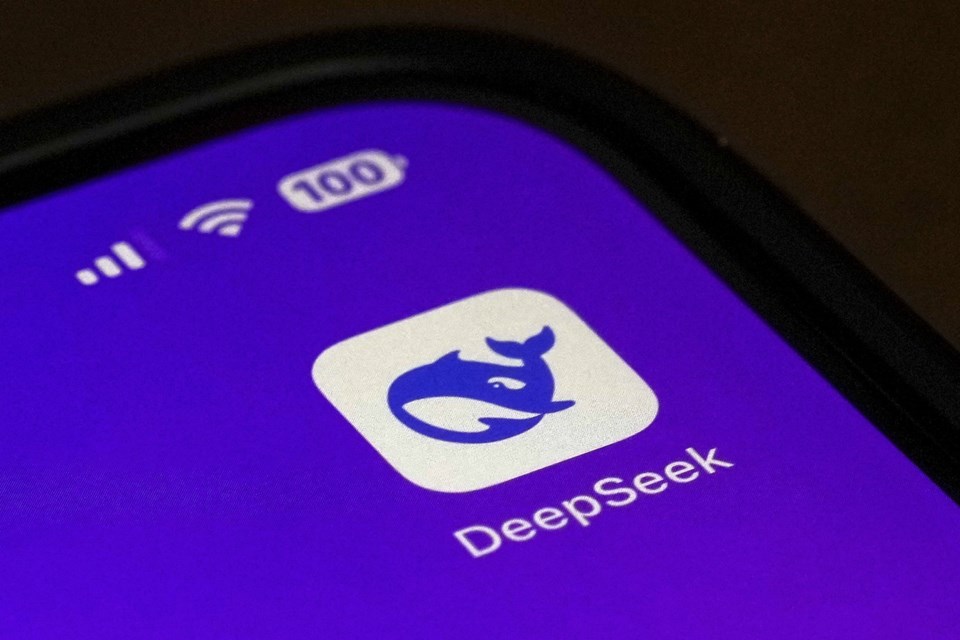The federal government has restricted Chinese artificial intelligence company DeepSeek’s chatbot from some of its mobile devices and is recommending other agencies and departments follow suit.
The Treasury Board Secretariat's chief information officer, Dominic Rochon, sent a memo Thursday to government departments detailing the moves he said are aimed at ensuring "networks and data remain secure and protected."
"Due to serious privacy concerns associated with the inappropriate collection and retention of sensitive personal information, and as a precautionary measure to protect government networks and data, it is recommended that departments and agencies restrict the use of the DeepSeek chatbot on government devices," he wrote in the letter.
Rochon's note said the restriction has already been applied to government mobile devices managed by Shared Services Canada, which delivers digital services to government organizations.
However, he also recommends other departments and agencies do the same as a "precautionary measure."
DeepSeek did not respond to a request for comment.
The company's chatbot has already been banned from government phones in Australia and is facing similar legislation from the U.S. House of Representatives.
The push to ban DeepSeek's product has materialized quickly.
The chatbot was only released last month, but generated plenty of buzz because it's said to be less energy-intensive and more affordable than offerings from rivals.
However, security experts have warned the chatbot collects user information including names, emails, telephone numbers and dates of birth, along with text or audio inputs, prompts, uploaded files, feedback and chat histories.
It also gathers device and network connection information, including what model of phone or computer a user is on, their keystroke patterns, payment information and how they use the company's services.
The collection of such data is a concern because Chinese national security laws compel organizations in the country to assist with intelligence gathering.
Brett Caraway, a professor of media economics at the University of Toronto, called the Canadian government's move against DeepSeek prudent because he said the Chinese government has a history of engaging in corporate espionage.
Yet he saw the approach as lacking consistency because it doesn't force the app off every government device but rather recommends its removal.
"That's a sort of half measure and I think that creates confusion," he said.
The approach bears resemblance to how Canada has handled social media app TikTok, which has a Chinese parent company, ByteDance Ltd.
TikTok was banned from mobile devices issued by the federal government in February 2023 following the launch of an investigation into the company by federal and provincial privacy commissioners.
Last November, the federal government ordered the dissolution of TikTok’s Canadian business after a national security review of the Chinese company behind the social media platform, but stopped short of ordering people to stay off the app.
TikTok is challenging the order, claiming it will slash hundreds of jobs in Canada and lead to the termination of a quarter of a million contracts it has with advertisers.
For the federal government, Caraway said DeepSeek is an easier target than TikTok, which has a massive userbase in the country and has become a daily habit for many.
"I don't think DeepSeek is as embedded in Canadian culture and the Canadian economy as TikTok," Caraway said.
While both apps are dogged by criticism, he added they're far from the only ones facing data privacy concerns.
"I would definitely like to extend this conversation to include platforms offered by companies like Meta and Alphabet," he said.
Meta owns Facebook, Instagram and WhatsApp, while Alphabet is behind Google and YouTube.
This report by The Canadian Press was first published Feb. 7, 2025.
Tara Deschamps, The Canadian Press



